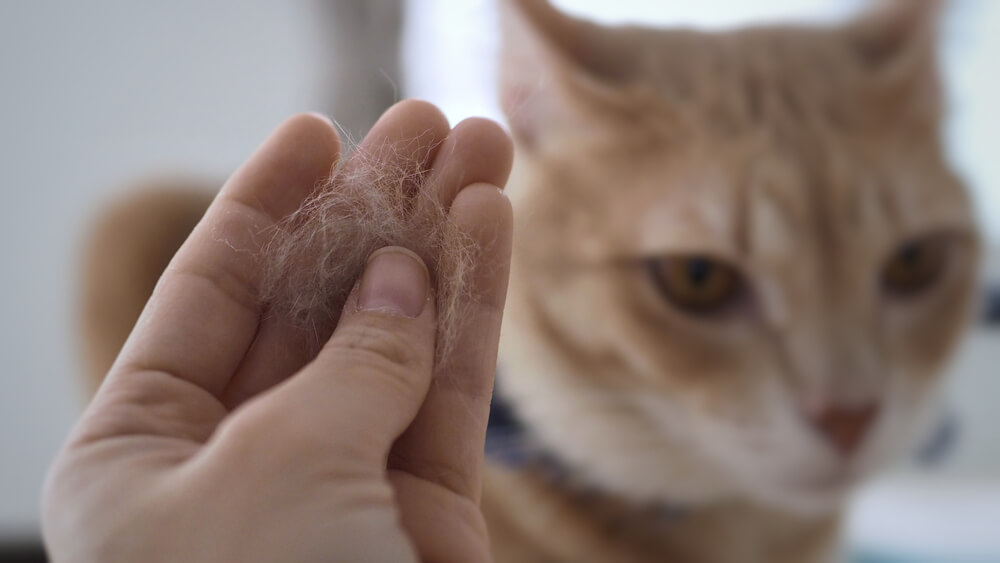Keeping your home smelling fresh and clean can be a more significant challenge than you think. A wide variety of odor-causing culprits can ruin your indoor air quality. Some odors may be unpleasant, while others could indicate more severe problems. This guide to common household odors will help you identify their causes and eliminate them for good.
1. Pet Dander
If you have a dog or cat, you’ve probably become accustomed to the smell of pet dander. This odor comes from the fur and dead skin cells your pet usually sheds. The smell becomes more potent when there’s poor air circulation in your home.
The best method to remove the odor caused by pet dander is to increase airflow throughout your home. Open your windows whenever possible and use a fan with your air conditioner. You can also use an air purifier to remove pet dander from the air. For maximum effectiveness, regularly vacuum your rugs and carpets using a machine with a HEPA filter.
2. Cigarette Smoke
Make simple lifestyle changes to prevent unpleasant household smells. This is particularly important when dealing with the strong smell of cigarette smoke in your living spaces. Tobacco smoke can stick to surfaces in your home, and the odor can become more intense if there are multiple smokers in the house. You can avoid this by establishing a no-smoking rule in your home and designating a porch or patio as the smoking area instead.
To eliminate smoke odors from your home, use a steam cleaner or a mixture of baking soda and vinegar to scrub your walls and furnishings—carefully clean carpets, curtains, and upholstered furniture to remove cigarette smoke from the fibers.
3. Fishy or Burning Rubber Smell
Some odors may indicate serious safety hazards. For example, a smell like dead fish or burning rubber can point to an electrical problem. If you notice these odors, schedule an electrical inspection immediately.
In the meantime, identify the source of the issue by checking for scorch marks around lighting fixtures, light switches, and outlets. Feel the areas around these surfaces to detect any unusual warmth or heat. If you notice any signs of an electrical issue, switch off the corresponding breaker.
4. Dirty Sock Smell
There are numerous hidden health hazards associated with foul odors. For example, if you notice a foul odor of dirty socks from your HVAC vents, it could be a sign of mold and bacteria build-up. This smell means it’s time to clean or replace your air filter. Usually, installing a clean filter will fix the problem.
Another underlying issue may exist if you still have odors from your ductwork. A comprehensive HVAC cleaning can help identify and resolve the source of the odor. Additionally, duct cleaning ensures that the air entering your living spaces is free from contaminants.
5. Musty, Soil-Like Odor
Water damage may produce an odor similar to wet cardboard or damp soil. If you detect this earthy smell, thoroughly check your home for any signs of water damage. You may uncover visible leaks or damage under a sink, on your basement walls, or in other noticeable areas.
In some cases, a plumbing leak or another source of water damage could remain hidden. Look for unexplained pooling in your yard to detect a problem with underground plumbing pipes. Look for stains, bulging walls or ceilings, and soft drywall or wood inside your home. Scheduling water remediation or repairs quickly before mold forms in these areas is crucial.
6. Foul-Smelling Kitchen Drain
Offensive odors are often found in the kitchen, mainly emanating from the sink drain. This smell is typically caused by the buildup of grease, oil, and food residues on the inner walls of the pipes.
Professional drain cleaning is the most effective solution for removing nasty smells from your plumbing. While waiting for the professionals, pour a mixture of baking soda and hot water down the drain to flush the pipes. If you have a garbage disposal, grind citrus peels and rinse them thoroughly with warm water.
Track Down Odors to Reduce Your Home Maintenance Costs
If unpleasant odors are not identified early on, they can indicate underlying issues that may result in expensive home maintenance problems. Taking a proactive approach to addressing home odors is essential. By locating and eliminating the source of the odors, you can prevent the need for costly repairs down the line.

